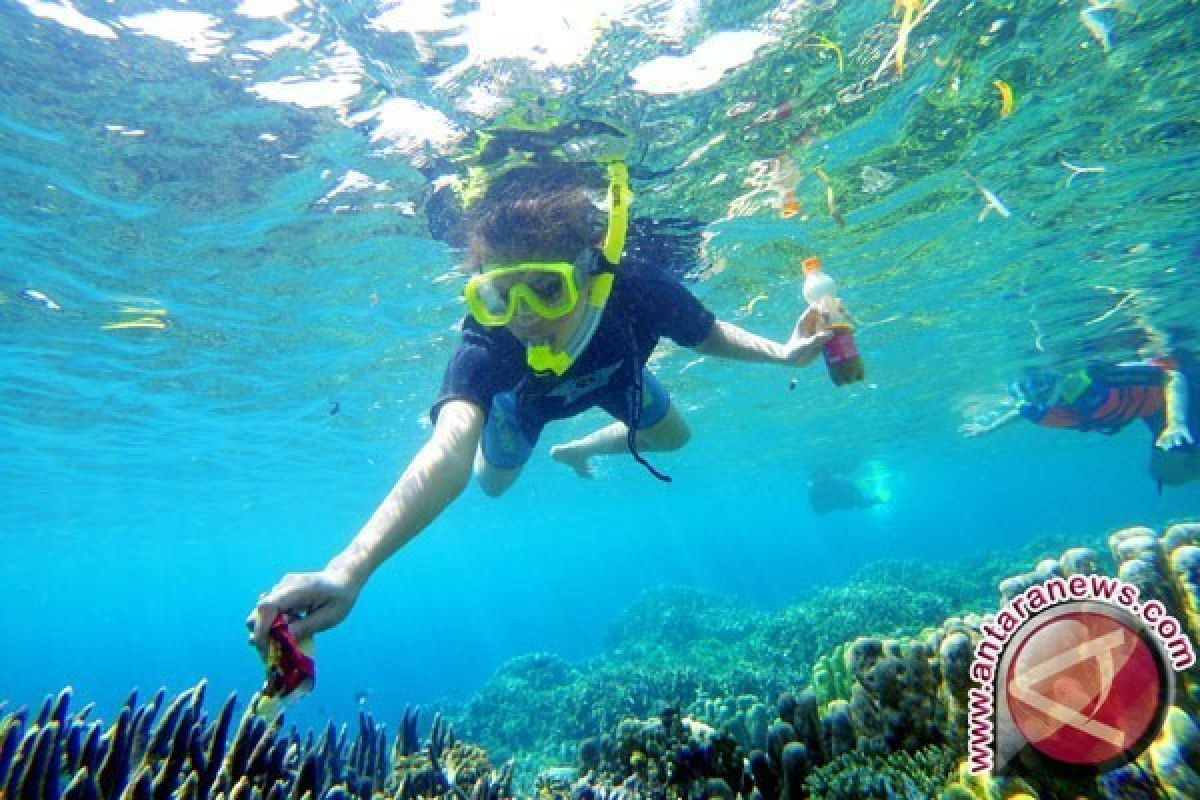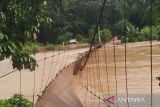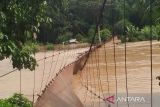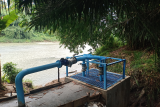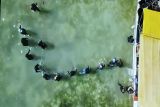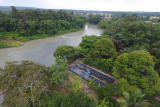Jakarta (ANTARA Sumsel) - Indonesia is an archipelagic country, which is blessed with vast and deep coral reefs. According to Matthew R P Briggs' study (2003), the area of coral reefs that Indonesia has is estimated to reach around 86 thousand square kilometers.
This figure equals to about 14 up to 18 percent of the world's coral reefs. Having these vast coral reefs is said to be a blessing from God Almighty, because their economic value alone is estimated to reach at least US$1.6 billion per year (Briggs, 2003). Herman Cesar calls these coral reefs and their associated marine life as one of Indonesia's greatest natural treasures (1996).
However, this gift has increasingly been threatened for decades due to various causes. The outcomes of Cesar' study revealed that the threats are mostly posed by humans, such as blast fishing, poison fishing, overfishing, and tourism development (1996).
Despite the fact that the blast or dynamite fishing is not the only factor that has contributed to the damages of the country's coral reefs, it does make Indonesia suffer huge economic losses.
Briggs noted that Indonesia could suffer a net economic loss of more than $920 million over the next 20 years as a result of the blast fishing that has been practiced by certain traditional fishermen in different parts of Indonesia since World War II.
This blast fishing practice has attracted the attention of both local and foreign media outlets. They attempt to cover issues related to the root causes of the problem, impacts of this destructive fishing practice on coral reefs, and risks that the blast fishermen may face.
Florian Kunert, German filmmaker, is one of the foreign journalists who had ever produced documentaries on blast fishing practices in the Indonesian territorial waters.
In a documentary titled "Why This Indonesian Fisherman Risked It All" that IRIN, an independent and non-profit media venture, released in 2016, Kunert showed the misery of life that a traditional fisherman living in the Island of Kaledupa, Wakatobi District, Southeast Sulawesi Province, underwent after he lost his left hand, caused by a home-made bomb that he used for the first time for fishing.
The three-minute documentary shows that Lino, the ill-fated fisherman, was aware of the risks of using the explosives in his efforts to get more fish. He, however, had no any other choice, amid poverty gripping his family life and absence of appropriate jobs for earning money.
Therefore, he went ahead to use the blast fishing method until he experienced the unexpected blast of the cocktail bomb that he used for the first time for fishing.
Prior to the accident, Lino noted that it was not easy for him to make a living from his earnings of just about $1.5 per day. Actually, the prices of fish that the Indonesian blast fishermen like Lino sell are much higher in the world market.
As revealed in Kunert's documentary, the fish that the Indonesian blast fishermen caught was sold around the world for more than $180 per kilogram" (2016). Now, Lino continues to support his family by catching octopus by hand, and he earns about $3 per day.
The blast fishing practices have not only threatened the lives of many fishermen but have also contributed to the devastation of coral reefs in Indonesia. Kunert noted that the blast fishing was one of the leading causes of the destruction.
Maritime Affairs and Fisheries Minister Susi Pudjiastuti is, indeed, aware of the threats on the country's marine ecosystems imposed by the traditional fishermen in certain parts of the archipelago, who still use this blast fishing method.
In coping with this problem, she believes that law enforcement needs to be imposed by both the local governments and police to tackle the violators because their destructive fishing methods have contributed to the devastation of Indonesia's coral reefs.
Of course, the law enforcement is not the only remedy for solving the problem. Susi Pudjiastuti pledged that her ministry would assist the fishermen by providing them with eco-friendly and sustainable fishing equipment.
The blast fishing may also be tackled by introducing the fishermen to alternative skills such as breeding saltwater fish and running aquaculture.
With these people-empowered and oriented approaches, more fishermen can be persuaded to make a living by getting rid of any destructive way of fishing.


